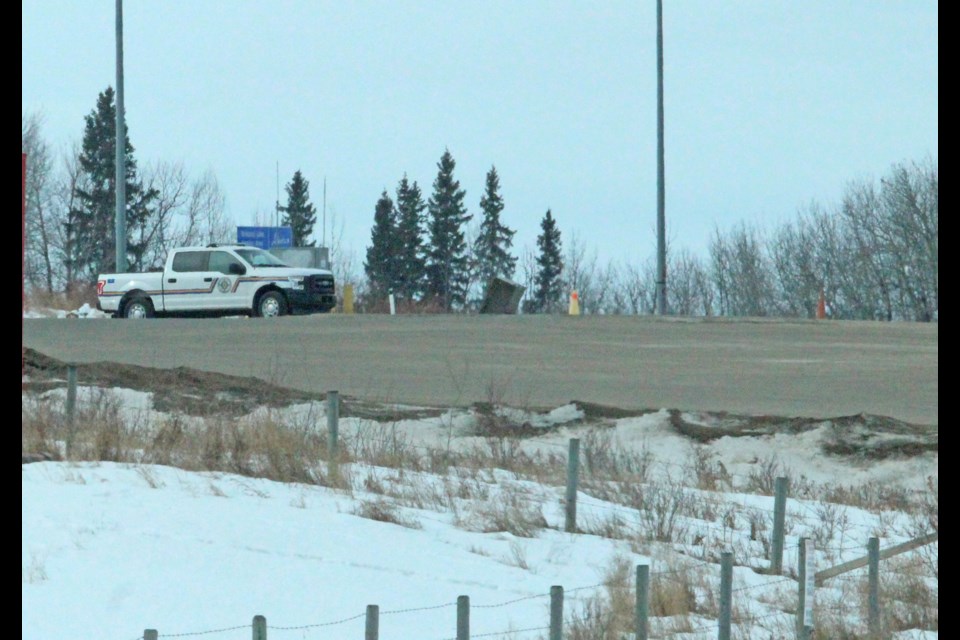LAKELAND - The rural crime plan was announced by the provincial government last fall, including plans to create the Rural Alberta Provincial Integrated Defence Force (RAPID), which would give Fish and Wildlife officers and members of the Alberta Sheriffs highway patrol departments, and commercial vehicle inspectors more responsibilities that include responding to 911 calls and taking on a wider range of policing duties, all without a pay raise, and sufficient training — say opponents.
“I’ve had lots of people come up to me in the community — both here in Lac La Biche and in Fort McMurray — indicating that they are really interested in exploring an Alberta provincial police … that’s definitely something we are looking at,” Fort McMurray-Lac La Biche MLA Laila Goodridge tells Lakeland This Week. “But currently we are looking at what kind of opportunities can we use our sheriffs to expand their scope, so they can better respond to the needs in our communities.”
When asked if the long-term plan was to replace the RCMP with a provincial force across the province, Goodridge said the current plan is an immediate response to help combat growing complaints of rural crime.
“At this point, any move would take some time, so we have to make things better right now or as soon as possible,” she said.
Lac La Biche County Mayor Omer Moghrabi has been part of the continuing talks about changes to rural policing, and says he is in favour of any effective measure that will combat the increasing fears and concerns of his residents. He says discussions at Fair Deal meetings across northeastern Alberta with provincial officials and municipal representatives from Bonnyville, Cold Lake, St. Paul, Lac La Biche and Fort McMurray have focused on all avenues to create more effective policing strategies. The implementation of local Crime Reduction Units within community RCMP offices is one positive step, and giving community peace officers more capabilities is another option he would like to see pursued across a region he calls the northeastern corridor.
“We are working together now in terms of rural crime … so we are working on that,” said the mayor, explaining that there are still many options to discuss for rural municipalities.
More work, less pay
While municipal leaders and provincial officials are welcoming the addition of new resources — with job descriptions of Fish and Wildlife officers expected to officially change as soon as December 1 — unions representing those workers would prefer if the RAPID idea slowed down.
Mike Dempsey, Vice-President of the Alberta Union of Provincial Employees (AUPE) says increasing the duties of Fish and Wildlife officers isn’t just about policing — which they already do. He says new training will involve working with mental health and abuse, which could leave some officers with mental health issues of their own.
When the announcement was initially made last year, Fish and Wildlife officers were told they would be getting a pay increase along with the new responsibilities, but just last month provincial government officials declared there would not be an increase in wages and that the officers' roles wouldn’t be changing that much. Dempsey says this isn’t true, and the job will be changing drastically for the officers.
“There’s going to be a significant increase in their role as Fish and Wildlife officers. They are going to have more responsibilities and it’s also going to be a lot more dangerous. RCMP officers right now make 15 per cent to 25 per cent more than Fish and Wildlife officers, and so they feel like they deserve more for the added responsibility,” said Dempsey.
Not only are Fish and Wildlife officers not getting equal compensation to RCMP, but Dempsey says the province is currently looking into a 10 per cent cut in what they now get paid.
“They have been targeted, and the government is into negotiations with AUPE right now and they are calling for a five per cent cut for all staff working for the government of Alberta. In addition to that, the government is also looking at cutting Fish and Wildlife officers’ salaries between seven per cent and 10 per cent,” he said.
The wage issue, increased workload and training issues may force some current officers to leave the department, fears a retired Fish and Wildlife officer.
“The best employees are passionate about their job, are self-motivated and show initiative. Fish and Wildlife officers are extremely dedicated to their job. If they wanted to be police officers, they would have become police officers,” said Peters. “Now that they are being told they are doing the same job as police officers, and won’t get paid accordingly, it doesn’t seem fair and this could mean good officers will change careers to get the pay that they deserve.”
Goodridge didn’t have any timelines on when comments from the consultation process would be reviewed.



